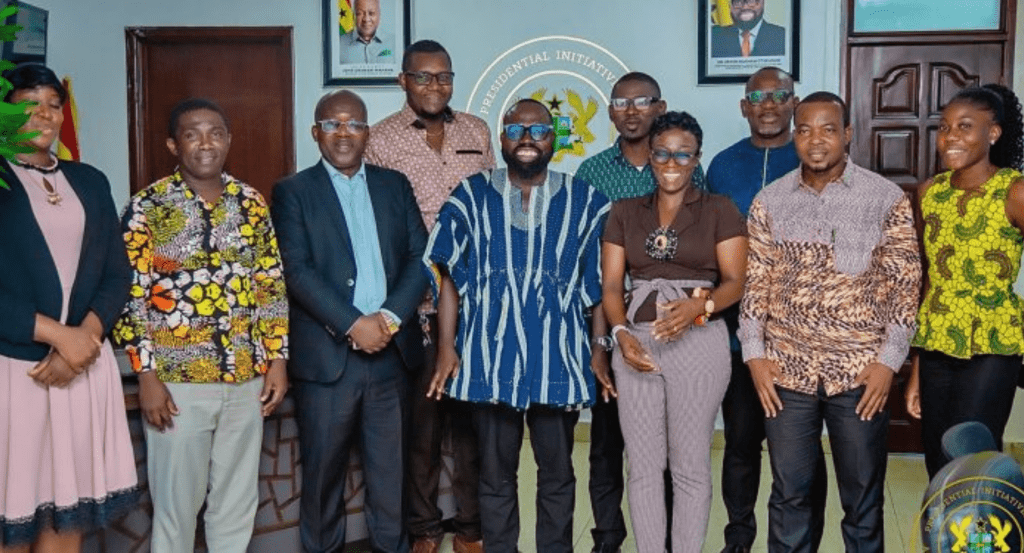The Government of Ghana is set to collaborate with the West Africa Centre for Crop Improvement (WACCI) to commercialize seed production, a strategic move to enhance agricultural transformation and reduce food imports.
The partnership aims to:
✅ Cut food imports by 50%
✅ Increase agriculture’s GDP contribution to $28 billion by 2028
✅ Create 20,000 direct agribusiness jobs & 190,000 indirect jobs
✅ Reduce post-harvest losses to below 5% by 2028
✅ Ensure 30% of farmers adopt climate-smart agriculture by 2028
Government-WACCI Collaboration for Agricultural Growth
During a meeting at the Office of the President Annex in Accra, Dr. Peter Boamah Otokunor, Director of the Presidential Initiative for Agriculture and Agribusiness, hosted a WACCI delegation led by Professor Eric Danquah.
The discussion focused on Ghana’s agricultural reset agenda, highlighting the role of Science, Technology, and Innovation (STI) in achieving food security and economic stability.
“The message is clear—without bold intervention, Ghana risks worsening food insecurity and economic instability,” Prof. Danquah warned.
SEE ALSO: Ghana’s 5.7% GDP Growth Applauded by NPP Minority in Parliament
Key Pillars for Agricultural Success
To achieve its ambitious agricultural transformation goals, WACCI outlined four strategic pillars:
🔹 Science, Technology, and Innovation (STI) – Driving research-driven solutions for increased food production.
🔹 Agro-Industrialization & Value Addition – Strengthening local processing industries to enhance food production efficiency.
🔹 Human Capital Development – Training farmers and agribusiness professionals for long-term sustainability.
🔹 Climate Resilience & Sustainability – Promoting climate-smart farming practices.
Government’s Commitment to Scaling Agricultural Innovations
Dr. Otokunor welcomed WACCI’s proposals, emphasizing that the government is fully committed to scaling up agricultural innovations through this partnership.
“We are ready to explore opportunities for commercializing WACCI’s research outputs to ensure long-term sustainability. This partnership will be a game-changer in Ghana’s agricultural sector,” Dr. Otokunor stated.
With this strategic collaboration, Ghana is set to accelerate its agricultural transformation, ensuring food security, economic growth, and job creation for its citizens.




















